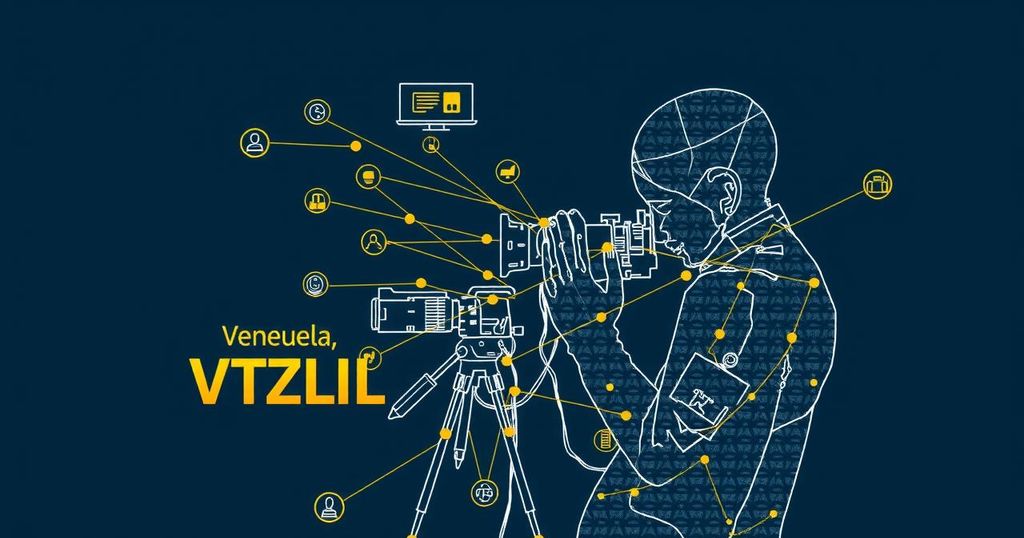Amid escalating threats to journalists in Venezuela, media organizations have launched “Venezuela Retweets,” a news program featuring AI-generated anchors. This initiative aims to protect journalists reporting on government repression while utilizing social media to disseminate vital information. By employing technology creatively, the program provides a safer avenue for news dissemination in an increasingly hostile environment.
In Venezuela, a coalition of media organizations has introduced a news program called “Venezuela Retweets,” which features AI-generated anchors named “La Chama” and “El Pana.” This innovative initiative seeks to safeguard real journalists who operate in an increasingly perilous environment following the government’s crackdown on dissent led by Nicolás Maduro. Unlike many Western journalists who perceive AI as a threat, these Venezuelan reporters regard it as a means of protection, allowing them to report news considered hazardous under the current regime. With rising restrictions on freedom of expression, at least 16 journalists have recently been arrested following anti-government protests. This initiative, involving approximately 20 news outlets and 100 journalists, delivers daily newscasts using AI avatars to present content that the Maduro regime deems unacceptable. By utilizing social media-friendly clips, the program ensures the dissemination of critical information while minimizing the risk of government retaliation against journalists. The significance of this AI-driven news program lies not only in its utility for reporting but also in its capacity to negotiate the dangerous landscape faced by journalists in Venezuela. As governmental efforts to suppress online dissent escalate, “Venezuela Retweets” emerges as a beacon of hope and innovation, showcasing how technology can bolster freedom of expression in authoritarian regimes. This strategy may inspire similar undertakings in other countries grappling with governmental repression.
In recent years, Venezuela has witnessed an alarming decline in press freedom under the regime of Nicolás Maduro, particularly following the disputed elections that have intensified government crackdowns on dissent. With traditional journalism facing growing threats, journalists have had to navigate a treacherous landscape to report on events. The initiative “Venezuela Retweets” represents a novel approach in which AI technology is deployed to mitigate risks while enabling reporters to continue their essential work. This marks a significant shift in how technology can be harnessed to protect fundamental rights of expression in oppressive environments.
In conclusion, the establishment of “Venezuela Retweets” underscores the innovative ways journalists are adapting to severe repression. By utilizing AI-generated news anchors, the initiative not only offers a protective shield for journalists but also ensures that critical news continues to reach the public. As repression intensifies, such creativity in the face of adversity may serve as a model for other countries experiencing similar challenges, emphasizing the potential of technology in safeguarding freedom of speech.
Original Source: theweek.com







